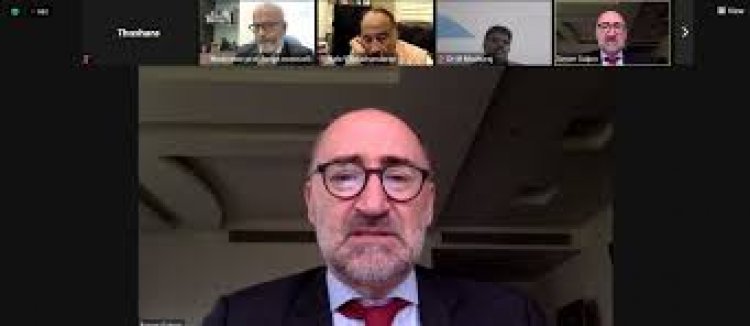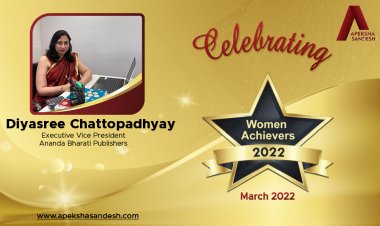Great Lakes Institute of Management hosts Dr. Simon Galpin as part of its Distinguished ‘Thought Leadership Series’

Mumbai: Dr. Simon Galpin, Managing Director, Bahrain Economic Development Board graced Great Lakes Institute of Management, Chennai in a virtual thought leadership session organized by the institute. Dr. Simon addressed a strong audience of 450+ participants and shared his insights based on his experience and observations over the years.
During the event, Dr. Simon touched upon some key aspects and spoke about the recent trends in FDI promotion in a post-COVID world and its implication for millennials. He started by saying that India has a large group of millennials and it is the nation’s strength. The first step is to attract and retain globally mobile talent. The creative class is critical in taking the digital economy forward. Countries need to re-evaluate education and immigration policies to attract global millennial talent. He emphasized that there is a need to support companies to retain the creative pool. The second point he made was technology will come to the aid of supporting talent. He said that the thought process should be to attract companies that bring useful technology to boost economies. Health tech is one of them and here is to stay. There is a lot of focus on high-growth-enabled start-ups and the right kind of hard and soft infrastructure to aid the growth of these companies. Hard infrastructure which includes access to 5G, cable networks and datacentres, and soft infrastructure which includes a transparent regulatory environment, remote working tools are going to be the necessary trends in encouraging FDI promotions in a post-COVID world. He further added tools like Zoom have enabled individuals to get the job done at a much quicker pace. It helps every one to get together like sector experts, decision-makers, local partners, and regulators and makes a difference to the whole process.
He added remote Flexi-working hours will go a long way in retaining younger talent especially youngsters, young mothers, among others. It can help in targeting companies in different time zones and allow individuals to develop skills to reinvent themselves. It will vividly bring everything to life. The next point he made was 'Small is Beautiful' and investment promotion agencies tend to target bigger companies and it becomes a bit too cluttered. There should be a focus on high-growth startups and scale-ups and even SMEs which are nimble, have the potential to grow fast and allows swift decision-making because of the less cumbersome company structure. He next spoke about how millennials are a critical value proposition and are tech-savvy, early adopters. He focused on soft skills like familiarity with presentations, usage of social media, good inter-personal skills, a keen entrepreneurial mindset, and able to use local knowledge to their strength. He said that menial jobs and internships will always add to knowledge and becomes a good learning opportunity. He stressed that it is important for millennials to engage with the startup ecosystem. The last valuable point he made was the importance of developing and maintaining networks for the millennials. It can start from building on your family and school connections. The development should be consistent across social media channels and should meet your objectives. He highlighted that the role of mentors is important and should be a win-win relationship.
Speaking during the event, Dr. Suresh Ramanathan, Dean, Great Lakes Institute of Management, said “We are honoured to have the magnanimous presence of Dr. Simon Galpin. He brought alive the ideas that millennials are an important cog in the wheel of the FDI ecosystem and they can be vital to highlighting a nation’s attractiveness as an investment decision. His vision of nurturing a young and skilled pool of people and how to develop your skills, build stronger networks can give the right signal to potential investors. His message was important for us and all the faculty and students of the institute and enlightened us to be prepared for the future.”















































